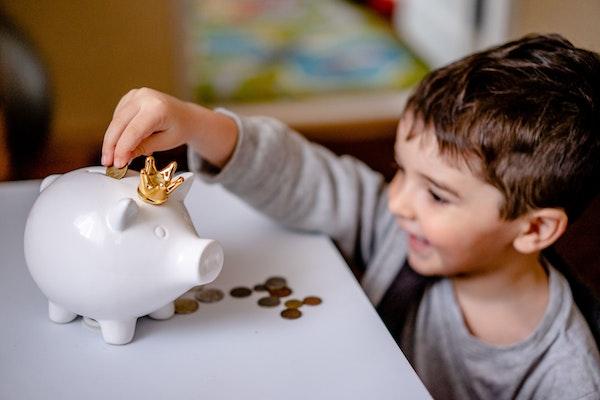These days, some people think it is difficult to raise financially fit kids. In actuality, it need not be at all. The key is involving kids with age-appropriate money decisions as they grow, involving them in age-appropriate homeschool economics, then helping them craft a blueprint for success as they grow.
The Early Years
Many parents introduce their young children to chores that form the basis for a weekly allowance. Linking the periodic receipt of money to well-performed tasks is a valuable lesson. Also, teaching youngsters that saving some of their money is important throughout life rather than spending all of it.
As part of their improved general education, many parents introduce their youngsters to banking as one of the first steps in their early financial education. For many kids, opening a savings account and watching their money grow helps form good financial awareness.
Onward and Upward
As young people transition from their teen years to adulthood, they begin to see a fulfilling life of potential and promise. If their lives are typical, some speed bumps will present themselves from time to time. Some of the bumpiest situations can revolve around money.
Here are a few that resonate with many young adults:
- How can I buy a car?
- Can I afford my education?
- I haven’t saved much, so what should I do?
Parents must help their kids develop a financial blueprint for success at this stage. The key to successful navigation in these often uncharted waters is to become aware of their circumstances, develop a good and actionable plan, create a savings fund, use credit wisely, and perhaps partner with trusted financial professionals.
Become Tuned In
First and foremost, help your older kids take stock of themselves. In an objective and positive manner, help them enumerate their skills and, at the same time, assess their financial situation.
Suggest that they flesh out their goals in writing. Remind them that this is not generally a one-shot exercise but something they must incorporate into their life as a healthy habit.
Develop a Road Map
The next step is constructing a plan tailored to the young person. This plan should include short-, intermediate-, and long-term goals and the estimated time frames for each. It’s often best to start with short-term goals first.
For example, perhaps an important short- or intermediate-term goal is to attend a trade school. However, at the moment, the young adult has very little money saved.
A potential plan for this goal would include:
- Researching the best school for their needs
- Learning about student-aid possibilities
- Getting a part-time job to build up the cash
As the plan is built out, they will want to add the following items: (1) Establishing a savings fund, (2) Guidelines for credit and borrowing, and (3) Sharing their skills and resources.
Establish a Savings Fund
A savings fund is mandatory for good financial health. Regular adding to a savings account builds confidence and financial stability. A small percentage of their income should systematically be placed into savings.
They’ll be building a habit that will support them throughout life. Remind them that their local bank will be able to help.
Be Prudent with Credit
Teach them to be cautious with debt and credit. Obtaining a credit card or loan for almost anything has become too easy. Remind them that all loans must be returned, often with substantial interest.
Share the Wealth
Guide them that they should not become too self-centered as they develop their plan. Encourage them to share a portion of their money, time, and talents with those less fortunate or with a worthy cause. Wonderful synergistic relationships can be established by sharing.
Conclusion
Teaching children about the economy and finances early is important because it can help them develop the knowledge and skills necessary to become successful adults.
Understanding the basics of how money works and how the economy functions are essential for making informed financial decisions and navigating the financial challenges they will face in adulthood. For example, children who learn about budgeting, saving, and investing at a young age are more likely to develop good financial habits that will serve them well.
Additionally, teaching children about the economy and finances can help them develop critical thinking and problem-solving skills that will be valuable in other areas of their lives. This can include learning how to evaluate opportunities, make educated choices, and understand how their choices can impact themselves and the society they are part of.
Understanding the economy and finances can also help children become more engaged and responsible citizens, better equipped to participate in public discourse and make informed decisions about the issues that affect their communities.

